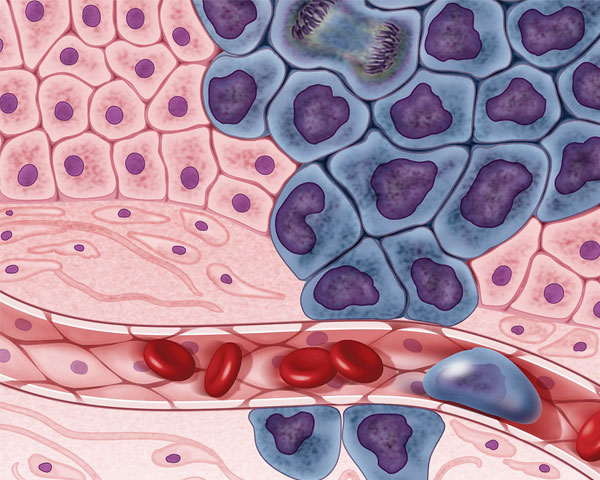Why the name cancer?
Around 400 BC, Hippocrates, the Greek Physician first described tumours as “cancer,” using the words “karkinos” from the Greek word for “crab”. Today, the word “cancer” is used to describe hundreds of different types of this disease. Our knowledge about cancer continues to grow as the prevention, detection, and treatment advancements continue to evolve.
Is Cancer Contagious? Is it always hereditary?
Cancer is never contagious. Only 10 to 15% of cancers are hereditary, the rest being sporadic in origin. Specific gene testing panels are available for testing hereditary cancer syndromes.
How was the drug for cancer discovered?
During world war II, nitrogen mustards had a profound effect on blood cells and certain lymph nodal swellings, which gave birth to the idea “chemotherapy”. Later these drugs were manufactured by genetically engineered techniques and the cascade of chemotherapy drugs started rolling ever since the late ’70s.
How is chemotherapy administered?
Chemotherapy can be administered by as tablets, injections, into cavities, topically as lotions and creams and into spinal fluid sometimes.
Does chemotherapy always cause deadly side effects?
The side effects of chemotherapy when administered appropriately, by the right person, to the right patient in the right doses, can be easily managed. The parallel advances in supportive care drugs for vomiting, body pain, growth factors to boost blood cells have gone a great way in preventing these deadly side effects of chemotherapy.
Is hair loss a universal side effect of chemotherapy?
Not necessarily. Certain drugs do not cause accelerated hair fall. Even if the patients have a hair loss, it is transient during the duration of chemotherapy.
What are high dose chemotherapy and stem cell ( bone marrow) transplant?
In some conditions, very high doses of chemotherapy are needed to kill resistant tumour cells, however unwantedly the same can kill the normal stem cells in the bone marrow. In such conditions, one needs to rescue bonemarrow by cells that can regenerate like “seeds”, inside the bone marrow. These seeds are called the “stem cells”, which may be taken from the patient himself (autologous) or from another person, usually a sibling (Allogenic).
Are specific infrastructure and equipment needed for such bone marrow transplant procedures?
Yes. The patient undergoing such procedures are at high risk of infection and also need intensive close monitoring and dedicated units, which is done only in selected centres. At MMHRC, Madurai the procedure was started in 2015 and it currently runs a successful BMT program for adults and children.
What is targeted therapy?
With advances in molecular techniques, the signature of each tumor has been clearly mapped. When we use drugs that can selectively act on these tumor cells, it is called targeted therapy. Many times such therapies spare the normal cells from unwanted side effects.
What is immunotherapy? What is so special about this therapy?
The difference between a sick patient and a healthy person, likewise a cancer patient and a cancer survivor, is majorly determined by the patient’s immune system. Tumour cells evade immune mechanisms by creating their own escape pathways. Blocking these pathways and stimulating the body’s immunity with certain highly targeted drugs is called “immunotherapy”. In immunotherapy, the cancer cells can be killed by the body’s own immune system. Due to the immunological memory these cells carry, long-lasting remissions occur sometimes in patients responding to immunotherapy.
Is cancer preventable?
Yes. By avoiding physical and chemical factors like radiation exposure, tobacco and amines related exposures, prevention of infections like hepatitis B & C, prevention of human papillomavirus by vaccination and avoidance of obesity can reduce the incidence of certain cancers.
Is cancer curable?
Yes.If detected early. Some cancers are surprisingly cured even in advanced stages. So the key to this is awareness about screening for cancer( especially breast cancer, cervical cancer and oral cavity).
Cancer is not a disease with one treatment and one outcome. Cancer is preventable by a healthy lifestyle. Chemotherapy advancements have made cancer treatment easy and acceptable for even older cancer patients without side effects. Cancer can be cured through early detection.





